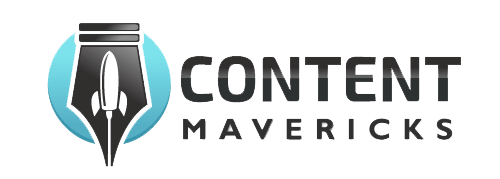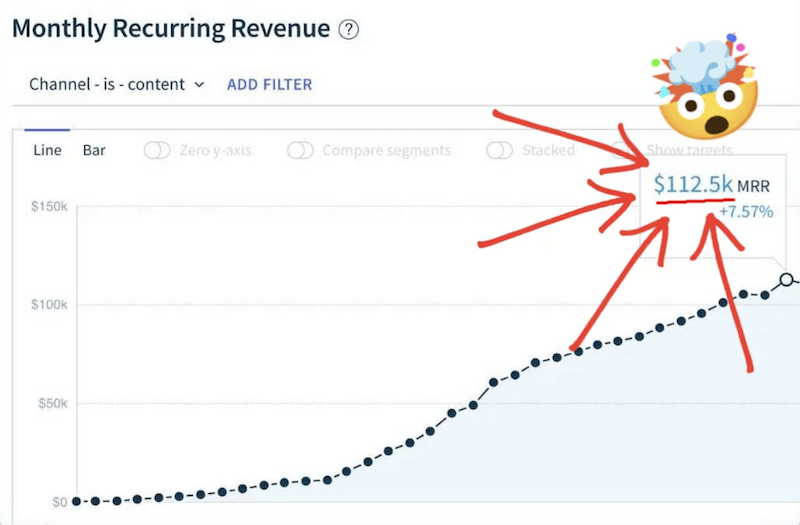Today there are 134 different startup ERPs. We spent 76 hours comparing the top 50 to find the seven best you can use to manage and grow your startup.
What is the Best Startup ERP?
- NetSuite — best of the best
- Sage Intacct — best for SaaS startups
- Zoho Creator — best for customization
- SYSPRO — best for manufacturers
- Dynamics 365 Business Central — best for fast-growing startups
- Odoo Community — best for free
- SAP Business One — best for tech startups
1. NetSuite
Our Verdict — Best Of The Best
Price: Custom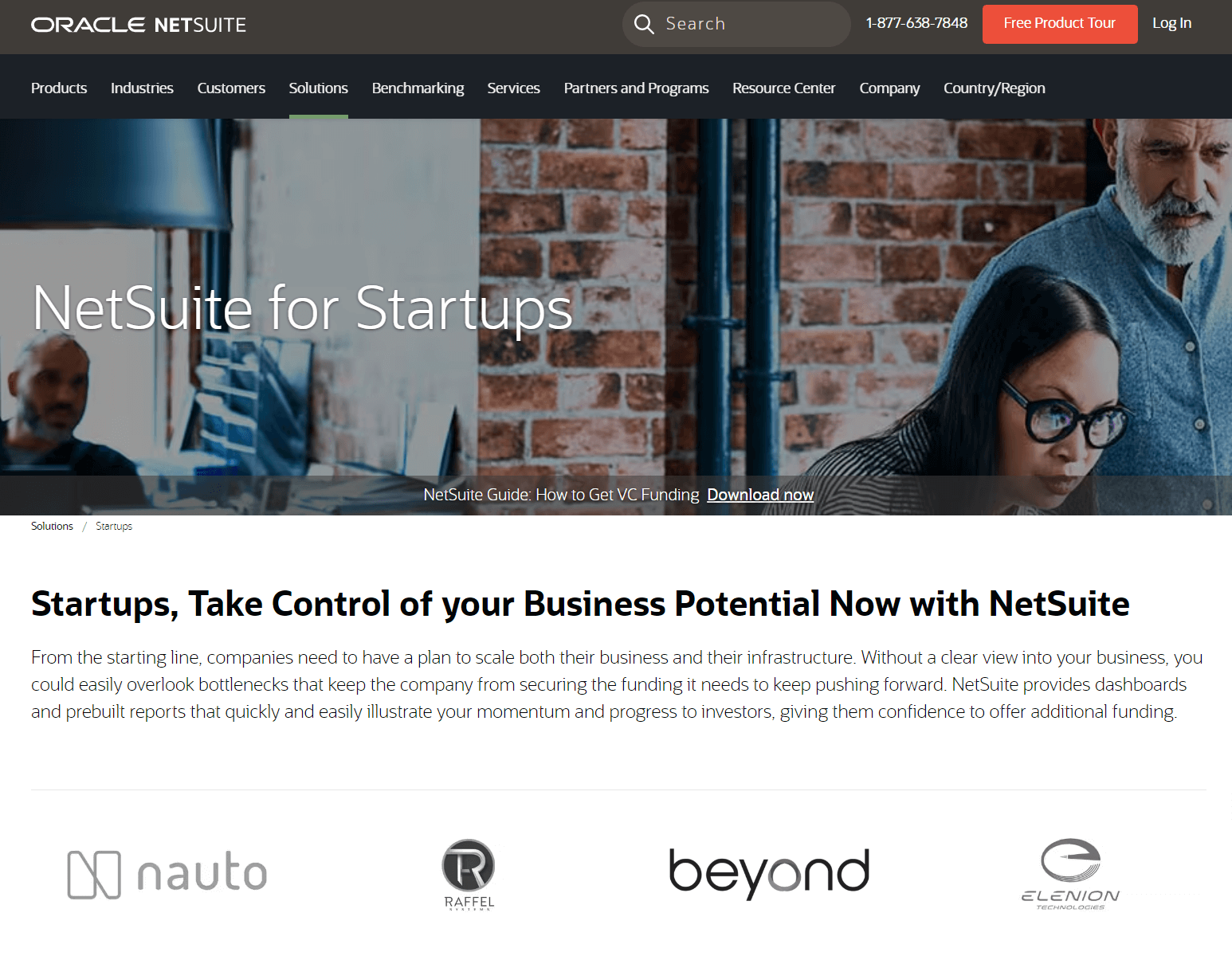
NetSuite is a powerful, cloud-based ERP system for startups. We think it’s the best because of its scalable architecture, customizable dashboards, and in-depth reporting capabilities.
The Best Part:
It’s easily scalable. NetSuite grows with your startup, and makes it easy to do so.
The Worst Part:
It can be costly for bootstrapped startups. NetSuite’s subscription is more expensive than most alternatives and it takes time and effort to implement.
Get it if you want to invest in an all-in-one startup ERP that you can scale and continue using in the long term.
I recommend you sign up for a free product tour to get familiar with NetSuite’s core features.
(free product tour)
Best For
NetSuite is best for startups that want a comprehensive, scalable ERP solution to streamline their operations.
Top Features
- Robust CRM capabilities. Build and maintain strong relationships by managing customer interactions on all channels, monitoring sales pipelines, and creating customized marketing campaigns.
- Real-time financial insights. Create personalized views of your startup’s most important metrics, giving you a clear snapshot of your performance at all times.
- Streamlined accounting system. Keep your finger on the pulse of your startup’s finances with NetSuite’s robust accounting tools and insights for accounts payable, tax management, general ledger, and more.
- Built-in ecommerce toolkit. Sell more with NetSuite’s ecommerce solution and store builder, and keep it all connected under the same roof.
- Comprehensive HR management. Spend less time when hiring and manage your talent with dedicated tools for attendance management, payroll, and shift scheduling.
Pricing
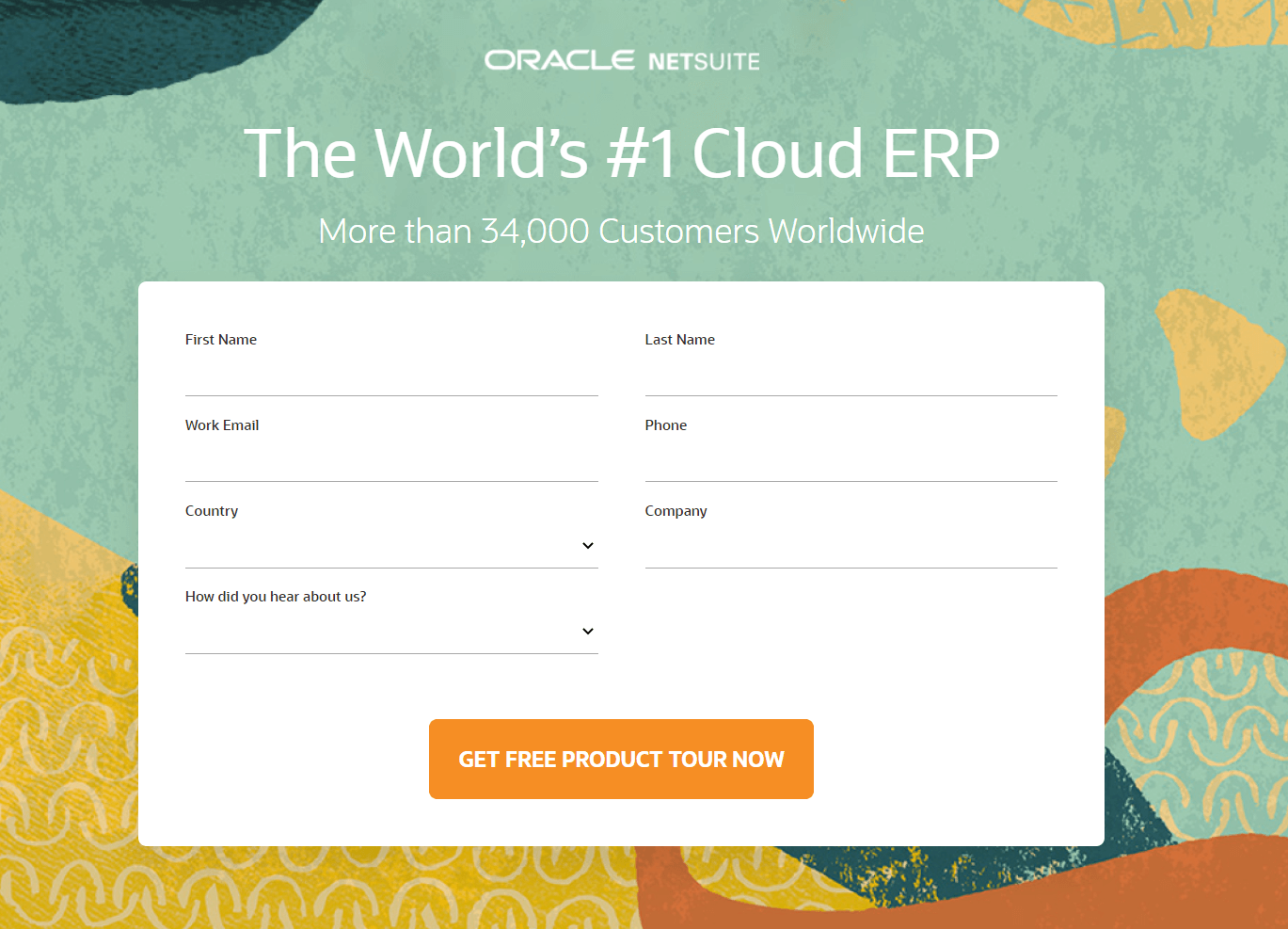
NetSuite offers a single pricing plan:
Custom pricing: Monthly plan, for FinTech, B2C, and ecommerce startups that want to build a long-lasting, reliable ERP solution to streamline operations and manage resources.
Try NetSuite today with a free product tour.
2. Sage Intacct
Our Verdict — Best For SaaS Startups
Price: Custom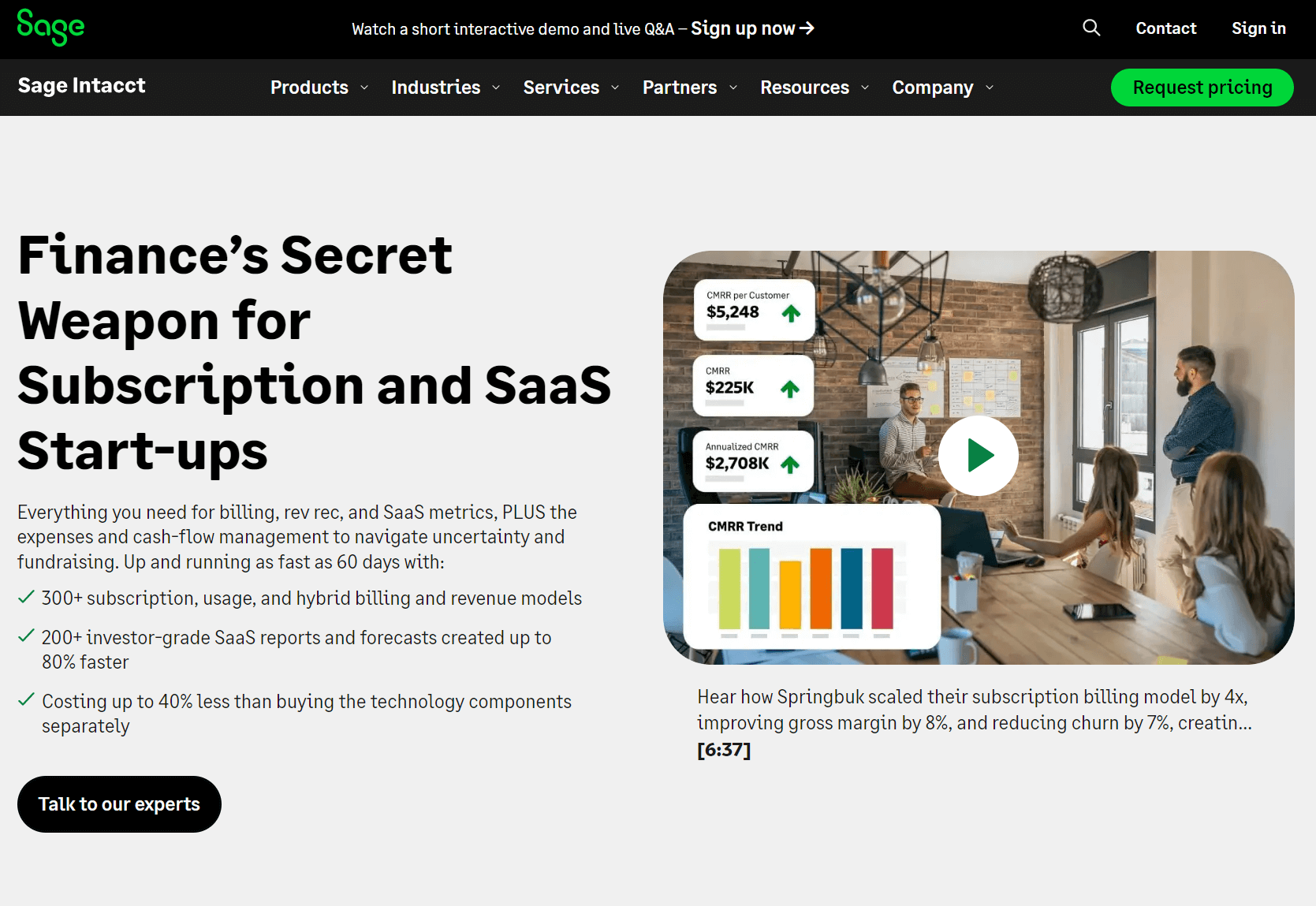
Sage Intacct is a finances-focused ERP, tailored for SaaS and subscription-based startups. We think it’s the best for SaaS startups because of its SaaS reporting capabilities, billing management tools, and streamlined accounting features.
The Best Part:
Sherlock-grade tracking. Sage Intacct streamlines tracking metrics, such as annual/monthly recurring revenue, customer acquisition costs, and customer lifetime value, to help you look good in the eyes of investors.
The Worst Part:
Steep learning curve. Sage Intacct can be overwhelming for some users at first, with its many functionalities.
Get it if you want a powerful ERP solution to stay on top of your SaaS KPIs and billing process.
I recommend you fill out the contact form to talk to Sage Intacct’s sales team.
(book a call)
Best For
Sage Intacct is best for growing SaaS startups that want a finance-focused ERP to get real-time performance insights.
Top Features
- Detailed reports on demand. Generate detailed reports in a few seconds, to look over your entire business with 200+ metrics — MRR, ARR, churn, CAC, etc.
- Dynamic subscription pricing. Experiment with over 300 pricing models to cut down churn and keep customers around for longer.
- A dollar saved is a dollar made. Keep a keen eye on your spending and budget with Sage’s powerful expense tracking tools.
- Collaborative ERP dashboards. Collaborate with teammates to solve problems, make quicker decisions, and speed up processes.
- Revenue recognition. Set up simple and complex revenue recognition triggers for your subscriptions and one-time payments — it’s only revenue when it comes in!
Pricing
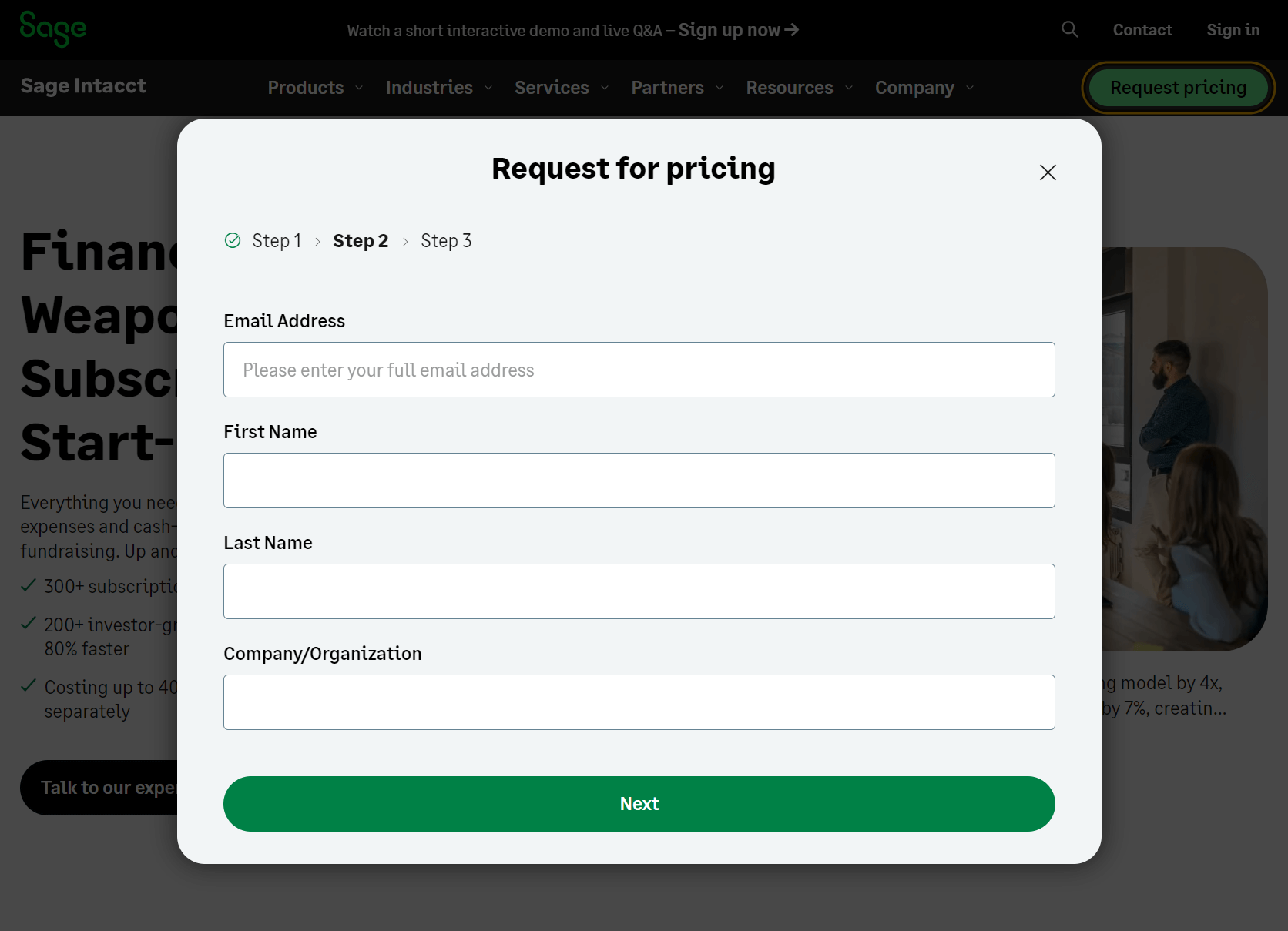
Sage Intacct offers a single pricing plan:
Custom pricing: Yearly plan, for growing software and subscription-based startups that want a finance-focused ERP with robust reporting and finance management features.
Try Sage Intacct today by booking a call.
3. Zoho Creator
Our Verdict — Best For Customization
Price: Starts at $12/month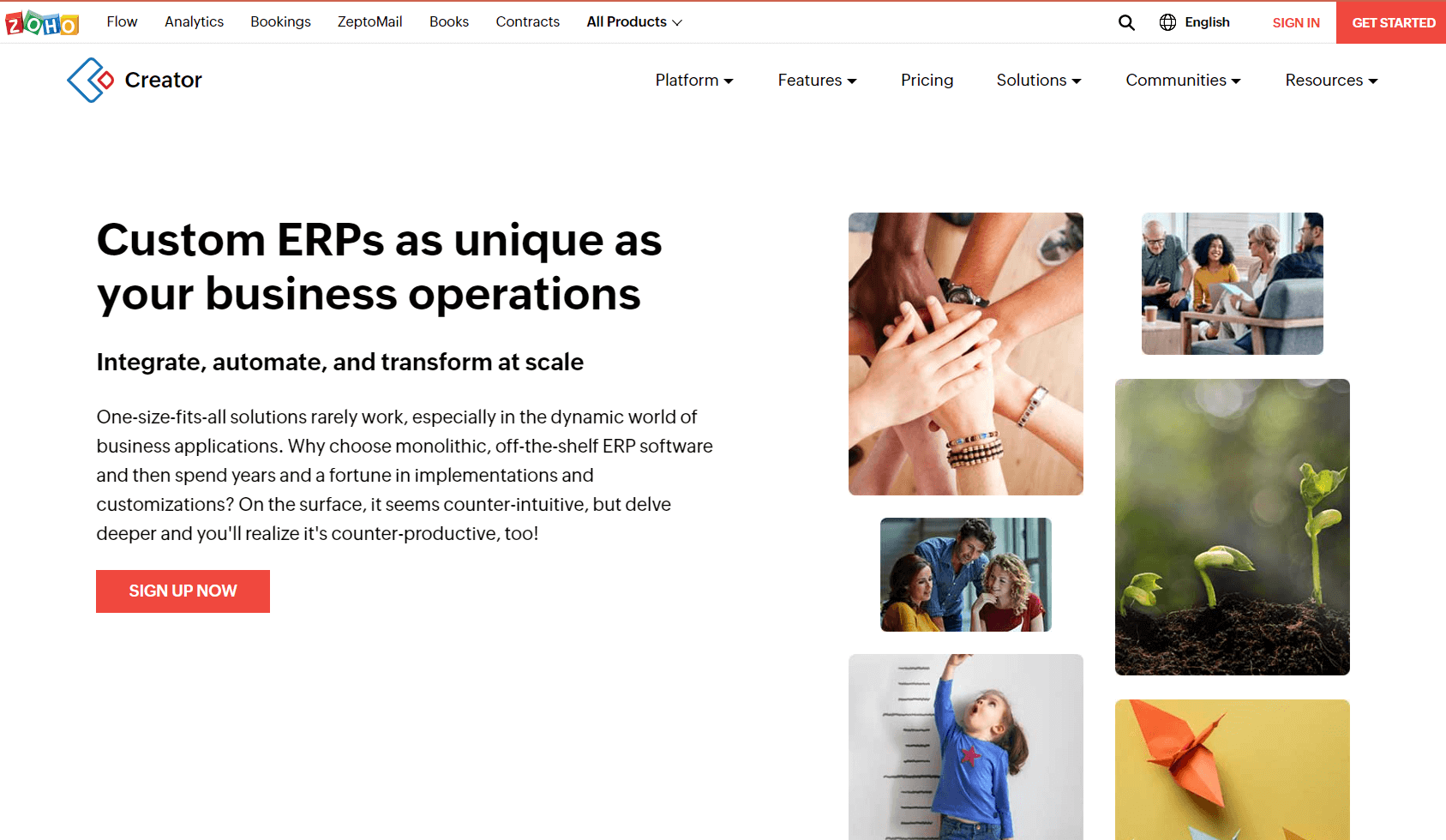
Zoho Creator is a low-code platform for startups that need custom ERP solutions. We think it’s the best for customization because of its drag-and-drop interface, seamless integrations, and business intelligence analytics.
The Best Part:
Extra user-friendly. Zoho Creator’s intuitive drag-and-drop interface makes it easy to build an ERP which is customized to your needs, even if you have no previous dev or low-code experience.
The Worst Part:
Limited reach. Zoho Creator may not be able to handle super complex workflows and processes specific to certain industries.
Get it if you want an easy-to-use tool to build a customized ERP without breaking the bank.
I recommend you sign up for a 15-day free trial, then upgrade to Enterprise at $37/mo.
(15-day free trial)
Best For
Zoho Creator is best for startups that want a cost-effective solution to build an ERP which will be ready to roll in a couple of days.
Top Features
- Seamless third-party integrations. Connect other business tools such as Slack, Gmail, and LinkedIn to Zoho for extra efficient workflows.
- AI-powered migrations. Import your existing data from third-party databases, spreadsheets, and even your current ERP, within minutes.
- Drag-and-drop business intelligence. Combine and visualize data from multiple sources to unlock key insights for your strategic business decisions.
- It speaks your worker’s language. Assign specific languages to your global team members and set up automatic or manual translations for each language.
- Business process automation made easy. Zoho streamlines your processes by automating repetitive tasks, setting up automatic email follow-ups, and setting up alerts for unusual events.
Pricing
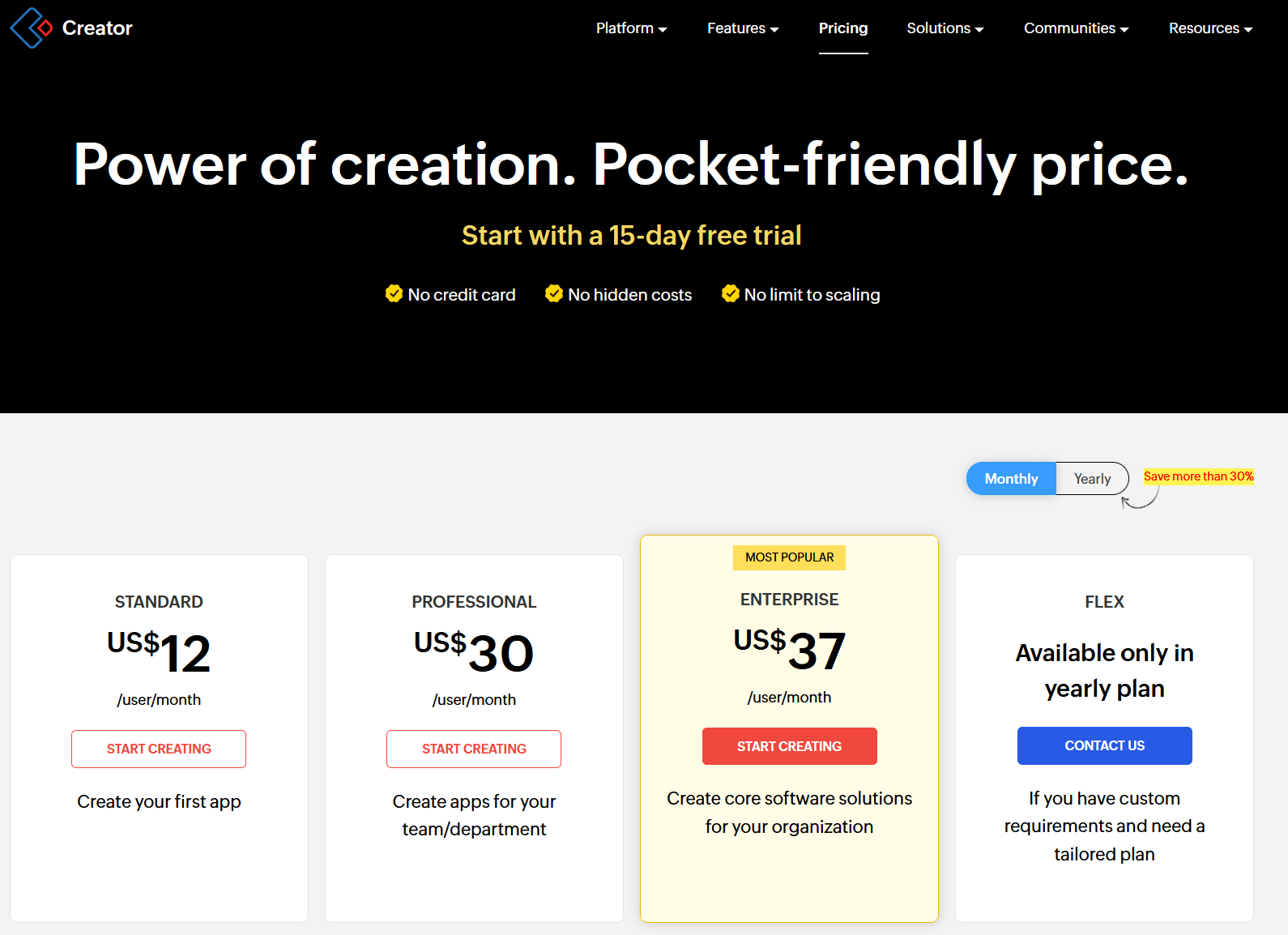
Zoho Creator offers four pricing plans:
- Standard: $12/month per user for startups looking to build a basic ERP to manage one part of their operations.
- Professional: $30/month per user for startups that want a complete ERP builder to manage all of their processes.
- Enterprise: $37/month per user for startups that want to build a well-connected ERP to streamline all operations, generate business intelligence analytics, and integrate third-party business tools.
- Flex: Custom yearly pricing, for startups that want to build a unique ERP to fit specific needs in their business or industry.
Annual plans provide up to a 33% discount.
Try Zoho Creator today with a free 15-day trial.
Our Top Three Picks
Here’s a quick summary of our top three picks:
- NetSuite — best of the best
- Sage Intacct — best for SaaS startups
- Zoho Creator — best for customization
Here’s a quick comparison of our top seven picks:
Tool | Entry Offer | Pricing |
|---|---|---|
NetSuite | Free product tour | Custom |
Sage Intacct | None | Custom |
Zoho Creator | 15-day free trial | Starts at $12/mo |
SAP Business One | 30-day free trial | Custom |
SYSPRO | Free demo | Custom |
Dynamics 365 Business Central | 45-day free trial | Starts at $70/mo |
Odoo Community | None | Free |
Here are the top 50 startup ERPs we considered in this review:
- NetSuite
- Sage Intacct
- Zoho Creator
- SAP Business One
- SYSPRO
- Dynamics 365 Business Central
- Odoo Community
- Tipalti
- Salesforce
- Scoro
- Kechie
- Dolibarr
- Brahmin Solutions
- Acumatica
- DataNote ERP
- ECi DeaCom
- ECi JobBoss2
- ECi Macola
- ERPNext
- Deltek
- Epicor Prophet 21
- Exact
- Intact Software
- OnCloudERP
- Method:CRM
- SAP Business ByDesign
- Crest ERP
- AccountMate
- Cougar Mountain Software
- SAP S/4HANA
- 24SevenOffice ERP
- Oracle Manufacturing Cloud
- ePromisERP
- FinancialForce PSA
- Infor XA
- Adaptive
- Oracle PeopleSoft
- Infor LN
- Oracle JD Edwards EnterpriseOne
- Plex Smart Manufacturing Platform
- Infor M3
- Epicor Eclipse
- Multiview ERP
- Prono Xi
- Total ETO
- 360 Cloud Solutions
- A2000 Global
- Accelerated ERP
- Apparel Data Solutions
- Apprise
What is the best ERP for startups?
The best ERP for startups varies depending on the specific needs and requirements of the business.
Among our top picks for startups is NetSuite, as the best overall ERP, offering comprehensive financial management, inventory management, and CRM capabilities on a single platform.
Sage Intacct is ranked second, particularly for software startups, providing robust financial services and accounting software integration.
Lastly, Zoho Creator, the third pick, excels in customization and offers solutions tailored to various business functions, making it ideal for businesses with unique operational requirements.
Should a startup use an ERP?
Startups should consider using an ERP if they aim to streamline their business operations, improve efficiency, and support growth. ERP systems can help startups manage their limited resources effectively by centralizing core business functions such as financial management, human resource management, and supply chain management. By implementing an ERP, startups can make more informed business decisions, better manage risk, and increase customer satisfaction.
What is the best ERP for small businesses?
The best ERP for small businesses depends on size, business strategy, and specific requirements. NetSuite is a popular choice, offering a cloud-based solution that scales with business growth and provides modules for financial management, sales management, and CRM. Sage Intacct is another strong option, particularly for businesses seeking robust financial management capabilities. For companies looking for a customizable solution, Zoho Creator is a fitting choice that allows for adapting the platform to suit unique business operations.
How do I choose the best ERP for my small business?
To choose the best ERP for your small business, consider the following factors:
- Business requirements — Identify your business needs and evaluate which ERP solutions best address those needs, such as financial management, inventory management, or human resources.
- Business size — Select an ERP system that accommodates your current business size and scales with your growth.
- Implementation partner — Find a reliable implementation consultant to help install, customize, and support the chosen ERP system (applies especially to NetSuite).
- Operational capabilities — Assess the operational capabilities of each ERP, ensuring it can streamline your business functions and improve overall efficiency.
- Operational cost — Calculate the total cost of ownership, including licensing, implementation, and ongoing maintenance, to ensure the ERP fits your budget.
- Risk management — Consider the ERP's ability to help you mitigate risks and maintain regulatory compliance.
- Customer service — Evaluate the quality of customer support the ERP vendor provides to ensure your startup receives the necessary assistance during and after implementation.
What is the most commonly used ERP?
The most commonly used ERP systems vary across industries and regions. However, some of the most popular ERP solutions include NetSuite, Sage Intacct, and Zoho Creator, catering to various industries and business sizes. These systems provide comprehensive functionality, such as financial management, customer relationship management, human resource management, and supply chain management, making them suitable for various types of businesses.
How much does a small business ERP cost?
The cost of a small business ERP can vary significantly depending on several factors, such as the software's complexity, the number of users, the customization level, and the deployment type (cloud-based or on-premise). Here is a breakdown of fees that you can expect for small business ERP software:
- Subscription fees — Cloud-based ERPs charge $20-$200 per user per month, often with tiered pricing.
- Perpetual license fees — On-premise ERPs have upfront costs of $1,000-$10,000+ per user.
- Implementation costs — Installation, data migration, customization, and training expenses can range from a few thousand to over $50,000.
- Maintenance and support fees — On-premise ERPs charge around 15-20% of the initial licensing fee annually, while cloud-based ERPs often include these fees in the subscription.
- Hardware and infrastructure costs — On-premise ERPs require servers and network equipment investments, while cloud-based ERPs do not.
The Bottom Line
To recap, here are the best startup ERPs to try this year:
- NetSuite — best of the best
- Sage Intacct — best for SaaS startups
- Zoho Creator — best for customization
- SYSPRO — best for manufacturers
- Dynamics 365 Business Central — best for fast-growing startups
- Odoo Community — best for free
- SAP Business One — best for tech startups
